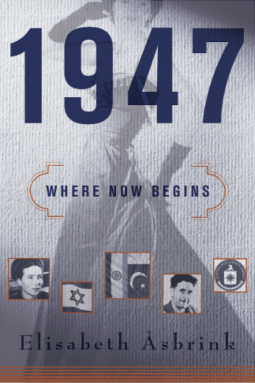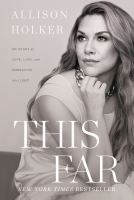
1947
Where Now Begins
by Elisabeth Åsbrink
This title was previously available on NetGalley and is now archived.
Send NetGalley books directly to your Kindle or Kindle app
1
To read on a Kindle or Kindle app, please add kindle@netgalley.com as an approved email address to receive files in your Amazon account. Click here for step-by-step instructions.
2
Also find your Kindle email address within your Amazon account, and enter it here.
Pub Date Jan 30 2018 | Archive Date Jan 30 2018
Talking about this book? Use #1947 #NetGalley. More hashtag tips!
Description
“One of the best books, certainly the best nonfiction book, that I've read recently.” —Nancy Pearl on NPR’s Morning Edition
“An extraordinary achievement.” —New York Times Book Review
An award-winning writer captures a year that defined the modern world, intertwining historical events around the globe with key moments from her personal history.
The year 1947 marks a turning point in the twentieth century. Peace with Germany becomes a tool to fortify the West against the threats of the Cold War. The CIA is created, Israel is about to be born, Simone de Beauvoir experiences the love of her life, an ill George Orwell is writing his last book, and Christian Dior creates the hyper-feminine New Look as women are forced out of jobs and back into the home.
In the midst of it all, a ten-year-old Hungarian-Jewish boy resides in a refugee camp for children of parents murdered by the Nazis. This year he has to make the decision of a lifetime, one that will determine his own fate and that of his daughter yet to be born, Elisabeth.
Advance Praise
“Among innumerable turning points in history, 1947, just two years after World War II ended, is a year worth review. Åsbrink's book, translated from the Swedish, makes some of that year's neglected history and high drama tangible and meaningful. With a technique reminiscent of John Dos Passos' "newsreels," the author records events from across the world (Paris, Palestine, New York, Los Angeles, Budapest, Berlin, Delhi, etc.), using the present tense to create a sense of immediacy…Throughout the book, Åsbrink artfully selects her narratives…A skillful and illuminating way of presenting, to wonderful effect, the cultural, political, and personal history of a year that changed the world.” —KIRKUS REVIEWS
“An intriguing account of a number of significant events which occurred in a year when the world was beginning to come to terms with the fallout from the Second World War…Åsbrink deftly brings together the tangle, the mess, the aspirations, and the disappointments which characterized the period and which for her resonate personally through her family history.” —Rosemary Ashton, author of One Hot Summer: Dickens, Darwin, Disraeli, and the Great Stink of 1858
Available Editions
| EDITION | Other Format |
| ISBN | 9781590518960 |
| PRICE | $25.95 (USD) |
Average rating from 9 members
Featured Reviews
 Philip C, Educator
Philip C, Educator
This is an outstanding book, written in a compelling style that moves the reader through it as though it were a page-turner. But it is not a page-turner: it is a finely crafted bricolage of events and people in 1947 which, taken together, provide important context for understanding the current historical moment. It also reveals eerie parallels to issues that Europe and the US area wrestling with right now.; the difference is that, in some cases, groups seen as protagonists and antagonists in 2017 had the opposite roles in 1947. The interlude where she describes her own family's experiences in the 1930s and 1940s anchors in a very concrete way much of what she presents in other parts of the book. It is an effective strategy, and reminds us that history written broadly is also deeply personal.
Asbrink writes the most effective and, in my opinion, best kind of history for a lay person. It draws on a range of archives and primary and secondary materials, but does not tangle the reader up in the academic apparatus necessary in academic historical accounts. It also leaves the reader with much to consider and conclusions for her/him to draw.
Readers who liked this book also liked:
Allison Holker
Biographies & Memoirs, Health, Mind & Body, Parenting, Families, Relationships




